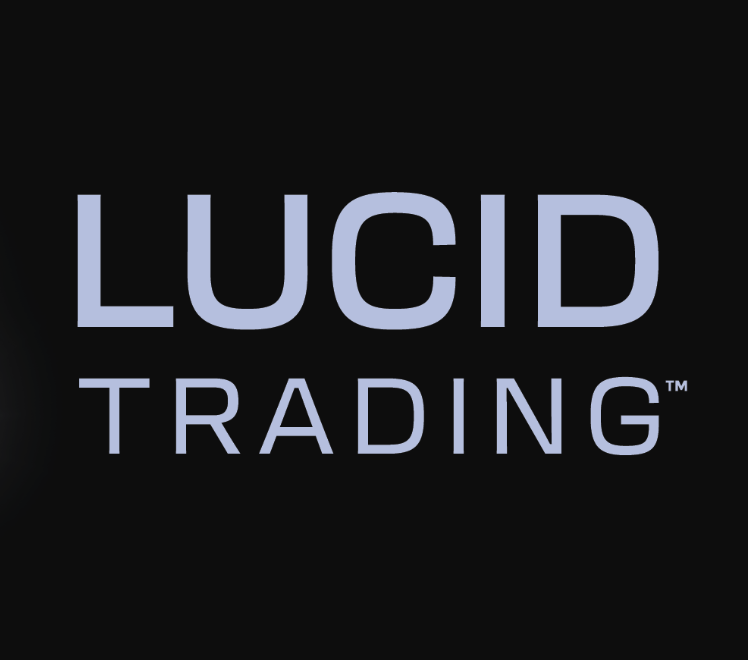Lucid Trading vs Apex: The Real Prop Firm Comparison for 2026
If you trade futures seriously, you eventually reach the same problem everyone hits:
Do you choose the cheap, high-volume route (Apex)…
or the clean, reliable, low-drama route (Lucid Trading)?
I’ve traded both.
Passed both.
Withdrawn from both.
Lost accounts on both.
And I’ve seen the backend issues on both.
This comparison distills everything down to what actually matters in real trading — not marketing noise.
If you want full deep dives, use the internal guides:
the Lucid Trading review and the Apex Trader Funding review.
But here, you get the direct matchup.
Quick Summary: The Short Answer
Lucid Trading is the better choice if you want:
- predictable payouts
- stable execution
- logical drawdown rules
- daily withdrawals
- no vague interpretations
- no retroactive rule changes
Apex is still valuable — but only for one thing: cheap evaluations and massive scaling.
If you’re running 10–20 accounts in rotation and only take small daily payouts, Apex makes sense.
If you want a firm you can actually rely on to pay consistently with clear rules, Lucid wins easily.
Lucid Trading vs Apex — Full Comparison
1. Evaluation Models: Controlled vs Chaotic
Lucid Trading
Two paths, both logical:
Lucid Test → One clean evaluation, no multi-phase tricks.
Lucid Direct → Skip evaluation and start funded immediately.
This structure is predictable.
You know what you’re getting, and they don’t add new rules after you pass.
Apex
On paper, Apex also uses a one-step evaluation.
But in practice?
- trailing DD follows unrealized profit
- minimum 7 trading days
- unlimited paid resets
- rules clarified only after problems happen
- payouts affected by “erratic” or “windfall” behavior
It works if you’re slow, steady, and small.
If not, it bites.
Winner: Lucid — by a wide margin.
2. Drawdown: The Biggest Practical Difference
Lucid Trading: Fair
Their trailing drawdown locks at the starting balance once you reach it.
This gives you freedom to hold runners without fear of unrealized pullbacks destroying your account.
This is how a trader-first prop firm should operate.
Apex: Dangerous for Normal Runners
Apex brag about “no daily drawdown.”
But the trailing DD follows unrealized equity every tick.
Scenario:
- you're up +$1,200
- trailing DD shifts upward
- market pulls back -$1,300 while still open
- account blown
- even though the trade was profitable overall
This rule alone is responsible for a huge portion of Apex losses.
Winner: Lucid — dramatically better for real futures trading.
3. Payout Speed & Trustworthiness
Lucid Trading
Daily payouts are the standout feature.
Request today → get paid tomorrow.
Works consistently.
No shady “reviews.”
No vague denials.
My payouts hit fast, clean, and predictable.
Apex
They say payouts every 8 days.
Reality varies:
- delays common
- approvals slow
- vague denials (“erratic trading”)
- profits recalculated
- rules interpreted differently week to week
Apex does pay — but it’s not always clean.
Winner: Lucid (by far)
4. Execution: Stable vs Twitchy
Lucid Trading
Platforms:
Rithmic
Quantower
Project X
Across all sessions I tested:
- no ghost orders
- no frozen DOM
- no surprise disconnects
- no server-side lag
Apex
Platforms:
Rithmic
Tradovate
NT8
Sierra Chart
WealthCharts
Great selection — but execution is the recurring complaint:
- Rithmic desync
- Tradovate lag (especially at US open)
- orders stuck open
- misaligned positions
- platform-side disconnects
This isn’t speculation. It’s common, consistent, and documented by traders everywhere.
Winner: Lucid — stable execution wins.
5. Rules: Predictable vs Interpretive
Lucid Trading
Clear rules, easy to follow, no hidden traps.
- trailing DD locks
- daily loss limits reasonable
- news rules predictable
- scalping allowed
- payout conditions transparent
Lucid behave like an actual business.
Apex
Rules depend on interpretation.
Reasons Apex has denied payouts:
- “windfall profit day”
- “erratic behavior”
- “scaling violation”
- “trading style mismatch”
- “too much profit too fast”
None of these terms are clearly defined.
And Apex updates rules silently, often after issues occur.
Winner: Lucid — no debate.
6. Pricing: Cheap vs Reasonable
Apex
The single biggest reason to use Apex:
It’s insanely cheap.
80–90% off discounts mean you can pass an evaluation for the cost of lunch.
If you run 10–20 accounts, you can scale fast.
But: cheap comes with risk.
Lucid
More expensive.
But what you're paying for is:
- rule clarity
- daily payouts
- proper support
- stable execution
You choose your poison.
Winner: Apex for cost. Lucid for value.
7. Best Use Cases for Each Firm
Use Lucid Trading if you want:
Daily withdrawals
Realistic, fair drawdown
Stable execution
Predictable payouts
Rules you can trust
A “main” prop firm you rely on
Use Apex if you want:
Ultra-cheap evaluations
Many accounts in parallel
Small, frequent payouts
A rotation strategy across 10–20 accounts
Low commitment entry to futures funding
Final Verdict: The Firm for 2026 Depends on Your Goal
The safe, stable, long-term choice → Lucid Trading
This is the firm you can actually build reliable income with.
Daily payouts.
Stable tools.
No hidden traps.
Real futures execution.
Fair rules.
It’s a grown-up operation.
The high-volume, low-cost scaling tool → Apex Trader Funding
Still useful.
Still in my rotation.
But I treat it like a speculative tool — not a core income source.
Small size.
Quick payouts.
Expect friction.
Don’t rely on it alone.
Overall Winner for Most Traders: Lucid Trading
Best Cheap Evaluation Firm: Apex
Best For Multi-Account Scaling: Apex
Best For Daily Cashflow: Lucid
.webp)
.png)

